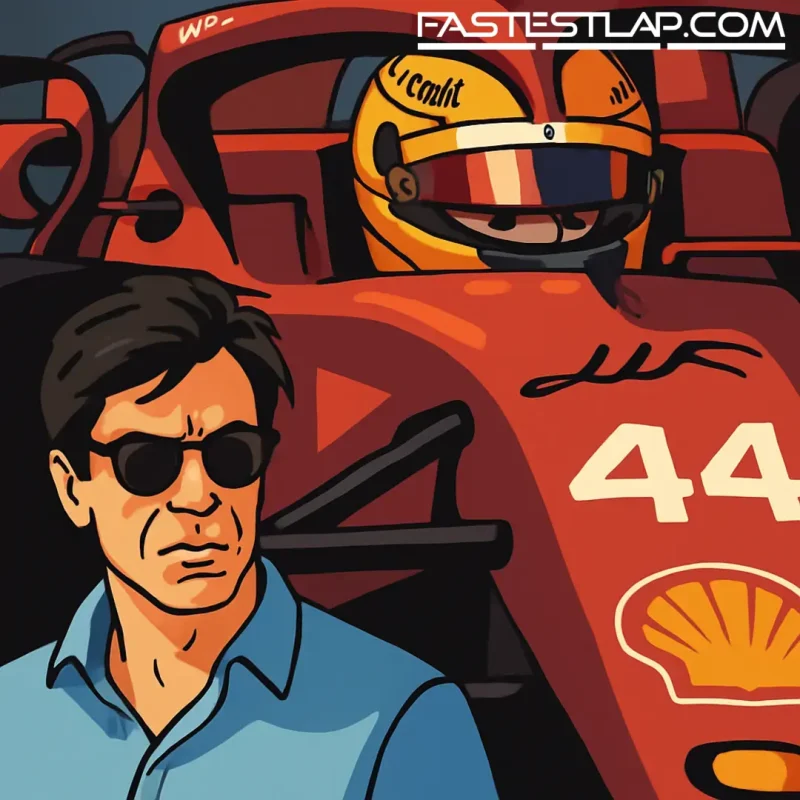Toto Wolff isn’t in the habit of indulging melodrama, even when it comes from the most successful driver he’s ever worked with. So when Lewis Hamilton called himself “useless” after a bruising Hungarian Grand Prix qualifying, Wolff picked up the phone.
“I thought that was wrong to say,” the Mercedes team boss said, recalling how he spoke to Hamilton “the same evening and again the next day.” The message: emotion is fine; self-erasure isn’t. “Did you ever hear Michael Jordan say about himself, ‘I’m useless and you change the player’? No.”
It’s been that kind of summer for Hamilton—raw edges, hard truths, and the kind of self-critique that makes headlines because it sounds so unlike him. The Ferrari newcomer trudged through a rough spell before the break: two Q1 exits in a row, then a scrappy Belgian weekend with a Sprint qualifying spin at the Bus Stop and a track-limits strike at Raidillon wiping his best lap for the grand prix. In Hungary he at least reached Q2, but missed the top-10 shootout by a quarter of a second. Adding a sting, Charles Leclerc put the other Ferrari on pole.
“I’m useless, absolutely useless,” Hamilton told Sky F1. “The team, they have no problem – you’ve seen the car is on pole. So, they probably need to change driver.”
Hamilton has always worn his heart on his sleeve. Wolff actually likes that about him. “It’s a fantastic character trait of his, that he speaks his emotion,” he said. “That makes him the superstar he is… But that one, I felt was such a bad moment for him to say that, because it’s simply not true.”
Sixteen races into his first season at Ferrari, Hamilton is still hunting for a debut podium in red. If one doesn’t come, it would be the first time in his 19-season F1 career he’s completed a campaign without stepping on the rostrum. That stat explains the frustration. It also explains why Wolff isn’t panicking.
“It’s clear that there are moments of big frustration,” he said. “But he’s had those frustrations with us as well. He just needs another good race weekend or two and then we’re gonna see a very different Lewis Hamilton.”
Wolff also ventured into legacy talk—always dangerous territory in a sport that changes its mind every Sunday. In his view, Hamilton’s story will always be written in silver and black, in the way Michael Schumacher’s will always be written in red. “He’s gonna retire, nobody’s gonna ever know that he was at Ferrari at the end. Who thinks about the Schumacher and Mercedes time? That isn’t relevant for Schumacher’s career.”
Of course, a giant asterisk is sitting there for everyone to see. If Hamilton turns Ferrari into an eighth title—his long-awaited decider over Schumacher—that page of the book gets rewritten in scarlet. Wolff knows it, too. He’s long since stopped entertaining the idea that Hamilton is finished. After Hungary, he doubled down again: “He’s the GOAT and he will always be the GOAT… Next year is going to be an important one,” he added, already eyeing 2026’s reset. “There are brand new cars which are completely different to drive. New power units that need an intelligent way of managing the energy. So that’s absolutely on for Lewis. I hope he stays on for many more years.”
There’s a practical point in there beyond the praise. Hamilton’s baseline—pace, racecraft, relentlessness—hasn’t gone missing. The margins have. The qualifying flubs, the track-limits lap, the spin under pressure; they’re the kind of miscues that turn P4 pace into P14 results. Ferrari, for its part, has given him enough car on certain Saturdays to make the contrast sharper. Hungary proved it: Leclerc nailed pole while Hamilton sat on the other side of the garage staring at timing screens and exhaling.
So where does that leave him? Somewhere between a brutal mid-season mirror check and the next opportunity. Hamilton’s language in Budapest was the lash of the moment. Wolff’s response was the cooldown lap—a reminder that the greats can afford honesty, but they can’t afford to believe their worst day defines them.
If there’s one certainty the paddock has learned, it’s this: don’t write Lewis off. Not this year, not next year, and certainly not when the rulebook flips again. He’s been in darker corners than a scrappy Q2 exit and found ways out. Whether that escape route leads to a Ferrari podium, or something wilder down the line, the story’s not done.
And Wolff, even from across the aisle now, knows a comeback arc when he sees one.




